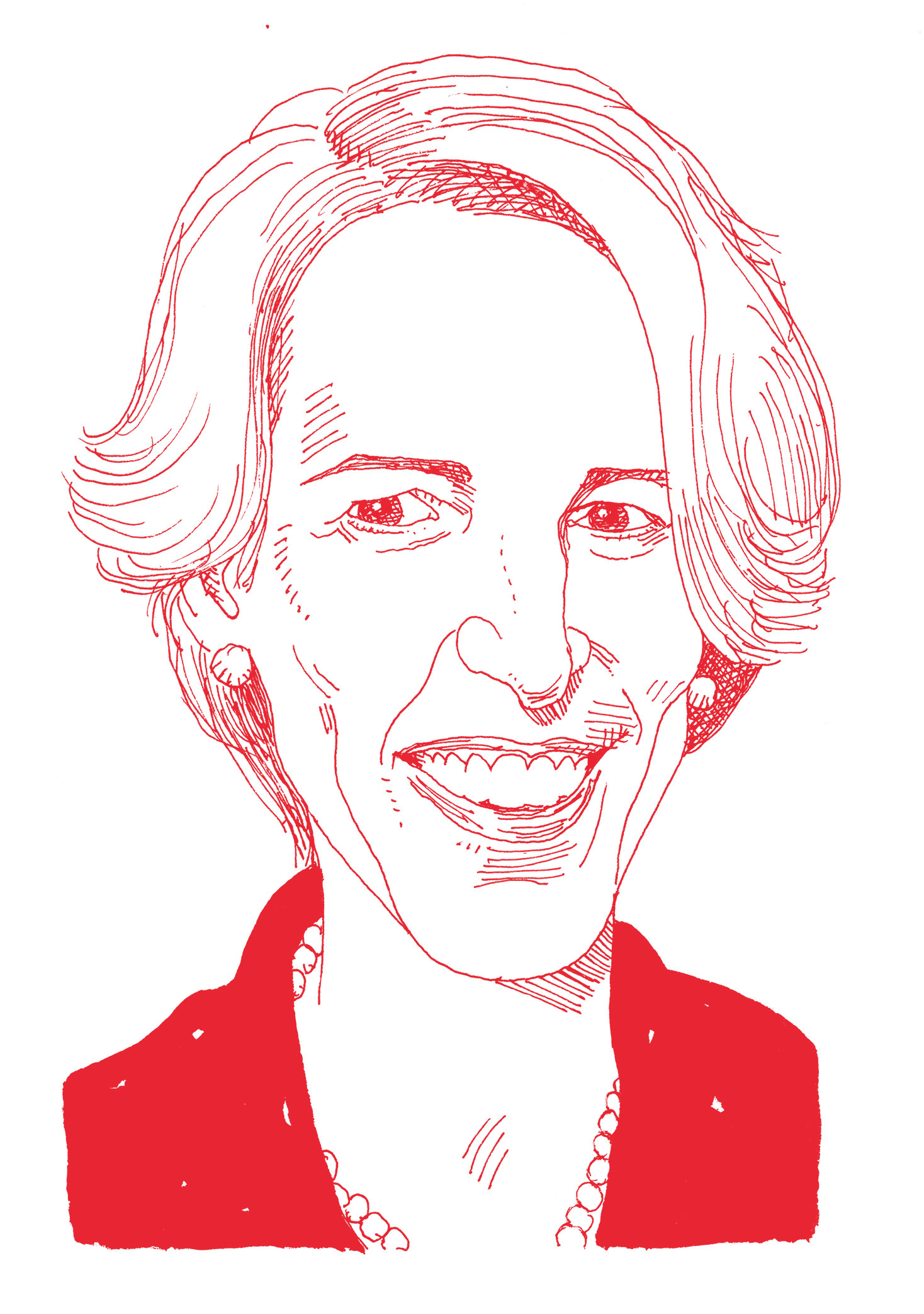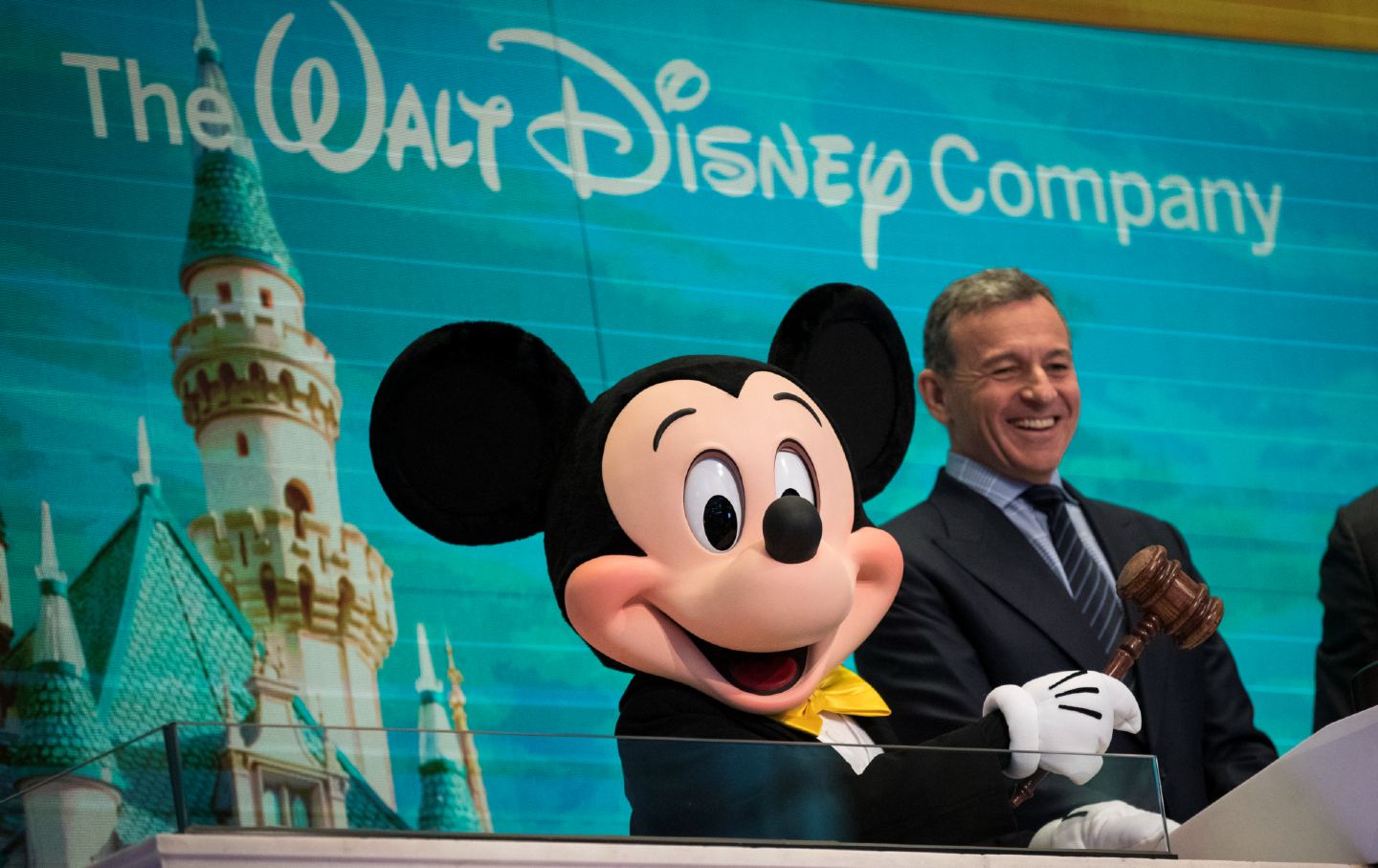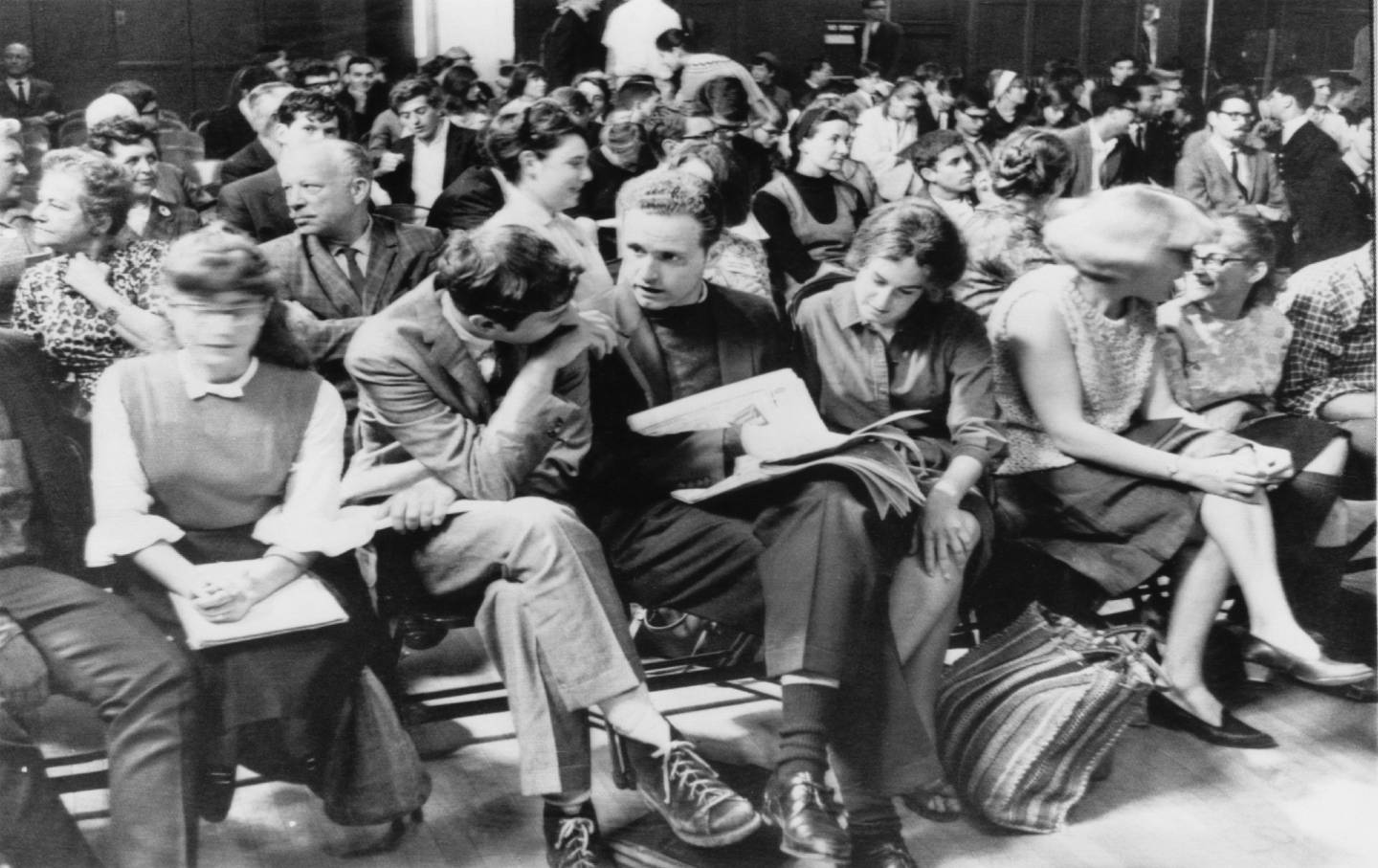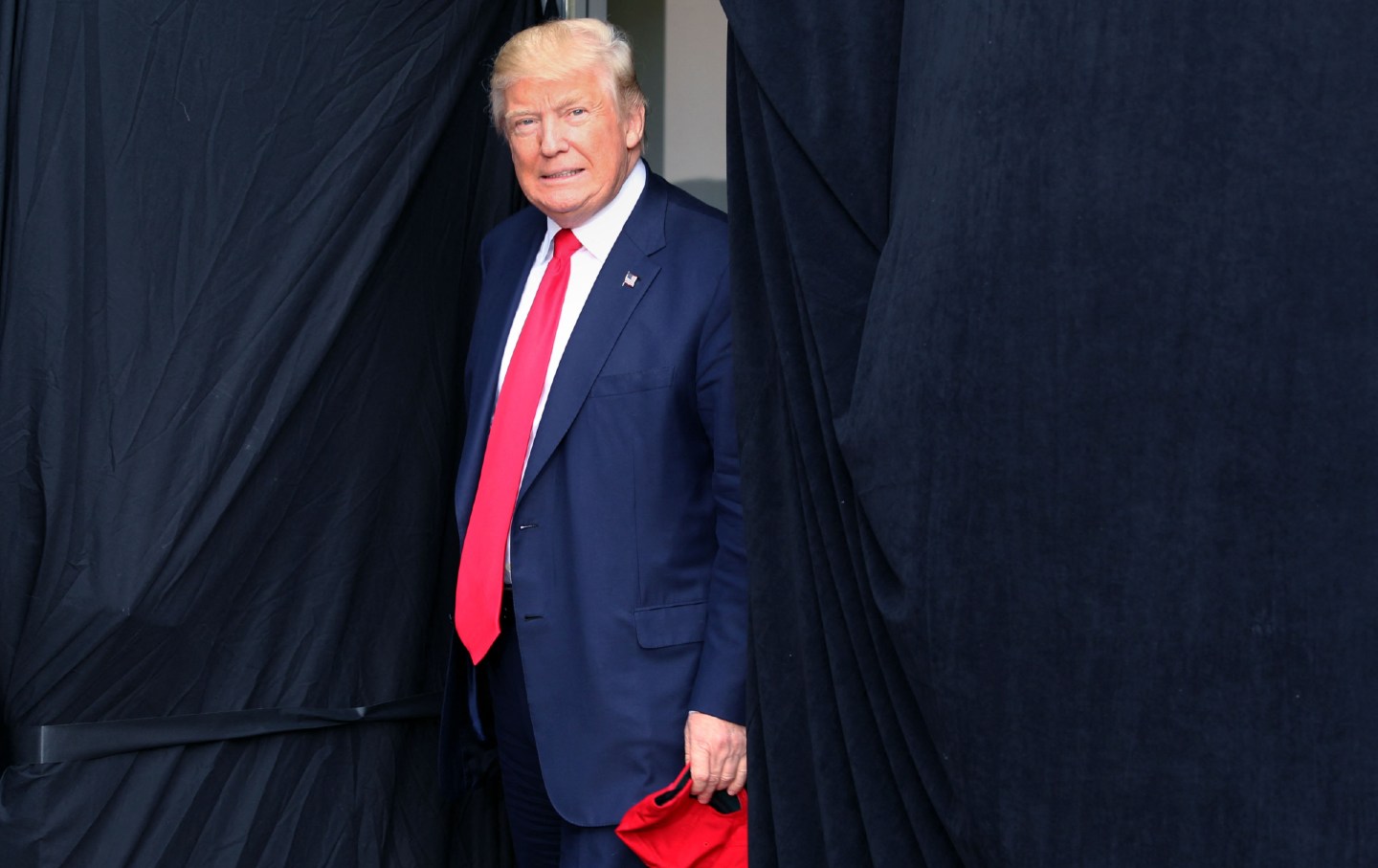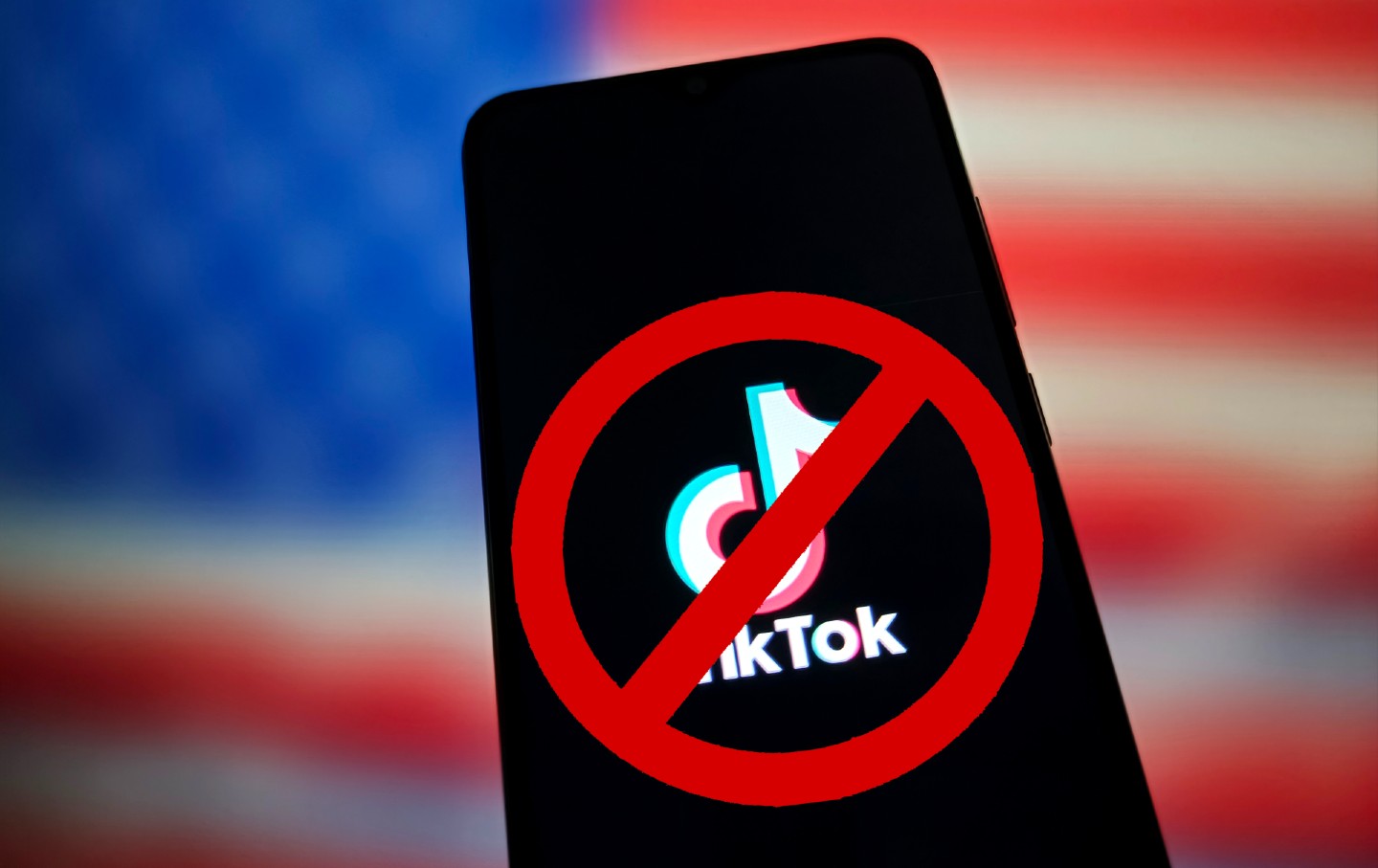Chuck Schumer Should Resign
Democrats never learned the lessons of Trump’s successes on tariffs and trade. Now the party’s leaders must take responsibility for their failure to embrace economic populism.
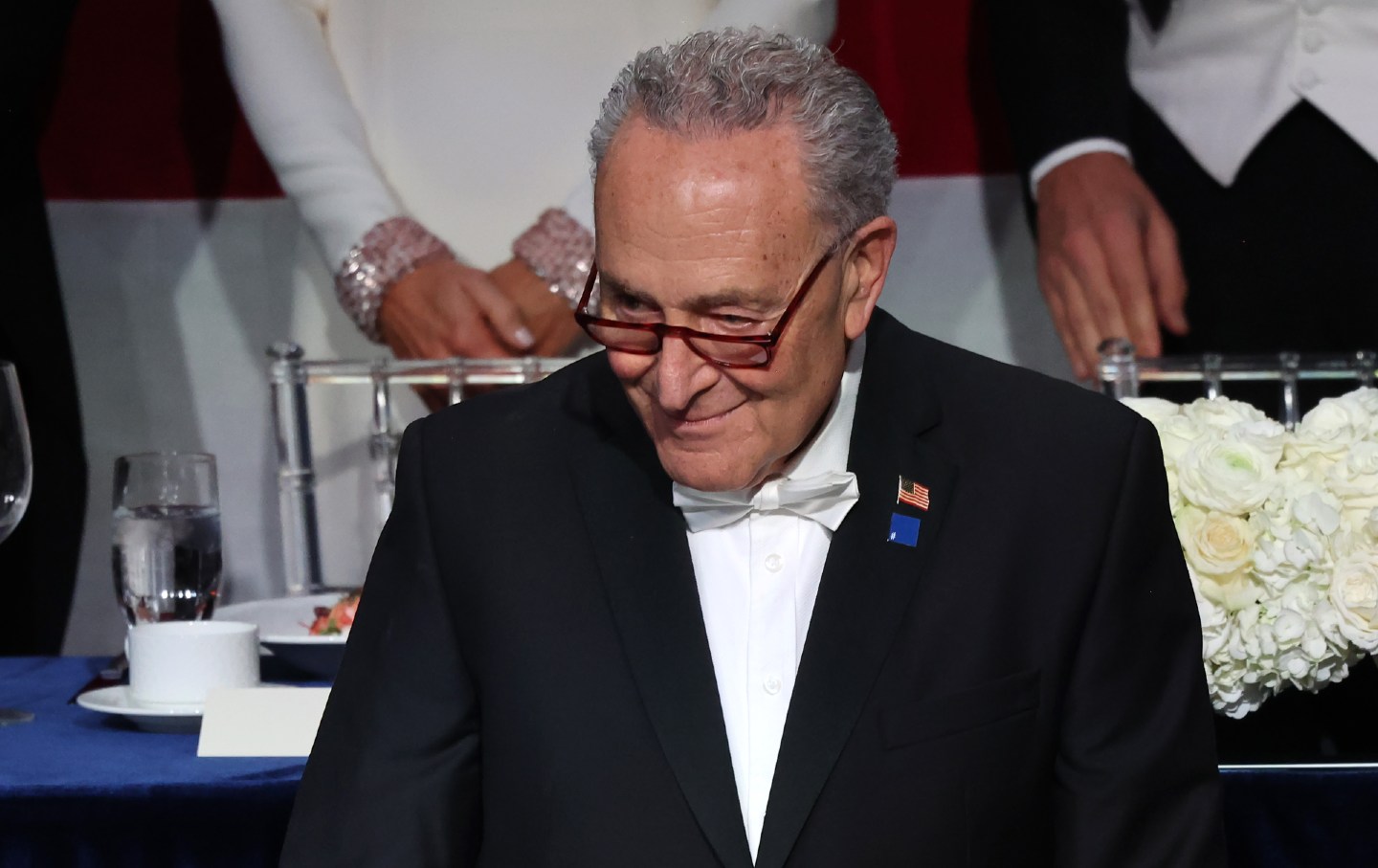
Senate Majority Leader Chuck Schumer attends the annual Alfred E. Smith Foundation Dinner at the New York Hilton Midtown on October 17, 2024 in New York City.
(Michael M. Santiago / Getty Images)
When a leader, whether of a party or a military campaign, sets out an explicit strategy that fails overwhelmingly, that leader, if he or she has a modicum of honor, should resign. In just the last few years, UK Prime Minister Liz Truss resigned after only 44 days in office; her successor, Rishi Sunak, resigned recently after leading his party to defeat. In August, Japanese Prime Minister Fumio Kishida resigned because of deep public dissatisfaction. Yesterday’s Democratic bloodbath requires no less of Chuck Schumer.
In 2016, Chuck Schumer confidently declared that Hillary Clinton would win, that Democrats would win the Senate, and that “for every blue-collar Democrat we lose in western Pennsylvania we will pick up two moderate Republicans in the suburbs in Philadelphia, and you can repeat that in Ohio and Illinois and Wisconsin.”
That did not happen. The obvious lesson, to many, was the party’s wholesale failure on economic populism, as a matter of both politics and policy. We Democrats didn’t just hold hands with Republicans on ultra-globalization; we had led the fight on opening everything up to China, and on NAFTA. Clinton led the way, but Obama followed, abandoning localism, economic patriotism, and anti-monopoly in favor of big companies and a promise of cheap goods. Deep dives into trade policy and polling found that Trump’s embrace of tariffs was key to his success.
But the party did not learn the lesson. Instead, it kept hunting for more and more suburban votes, and kept promising that demographic change would magically do the work that campaigning was not doing. Millennials, Gen Z, and Black and Latino voters were supposed to come in and save the party that was losing on its own terms. Big money and big super PACs were supposed to fill the void left by an increasingly hollowed-out local party infrastructure, and the goal of hunting for suburban votes fit nicely with the goal of wooing big donors like Mark Cuban and Reid Hoffman.
There were exceptions, in the late teens and this cycle. Representative Chris Deluzio from Pennsylvania won in Trump country with a strong track record of supporting tariffs against China and fighting against bad trade deals. Josh Riley in NY-19 won in a knife fight in the most expensive house race in the country with a focused agenda of fighting price gouging, calling campaign donations corrupt, supporting tariffs and local manufacturing. (To be sure, the indisputable populist Sherrod Brown was swallowed by the red wave; the Democratic Party’s overall perception matters more than individual races except in closely divided districts.)
Despite this, Biden, of all people, seemed to actually understand the problem; in domestic policy, at least, the president turned his back on Wall Street and elite donors, instead pursuing aggressive antitrust action and doubling down on the tariffs put in place by Donald Trump, supplementing them with crucial domestic spending to support local manufacturing. He elevated Lina Khan, Rohit Chopra, and Katherine Tai, and called on the Senate to act to break up Big Tech.
But Biden had to work with a Federal Reserve that was determined to keep interest rates at unbearable levels. He also bizarrely seemed to choose a press office that reflected the Clinton/Obama legacy, and instead of openly welcoming the hatred of the billionaires and monopolists and globalists his administration was confronting, most of his public statements—with few exceptions—sounded more like aw-shucks pragmatism, not reflecting the righteous public anger at elites who had been politely screwing over Americans for decades and calling it “efficiency.” But one of the key hurdles in the way of economic populism was a Senate led by Schumer that was notoriously uninterested in fighting corporate power. Schumer killed the Big Tech bills, and carried water for crypto.
How could an electorate whose top issues were the economy and democracy choose Trump? Because of the failures of Democrats to stand up for the little guy against crushing concentrated financial power. What Schumer has never understood—and many Democratic elites continue to fail to understand—is that economic populism is every bit as much about democracy as the big “democracy is on the ballot” discussion that dominated the legacy media airwaves. It’s about working class people having power, enough power that they can speak freely, change jobs, start a company, without being crushed by global trade or corporate monopolies. And trade policy is about economics, to be sure, but it is also about reaffirming democracy, too, the sovereign power to make decisions over our own lives. Perhaps big money and the dreams of super PAC dollars backing him up clouded his view.
This is not all Schumer’s fault, sure, but that doesn’t mean he shouldn’t resign. There are decades’ worth of leaders who share in the blame. Other heads at the DCCC and DNC should step down as well. But a high-profile resignation by Schumer would, perversely, give Democrats reason to hope. One of the core responsibilities of leadership is taking responsibility for success and failure equally, without overclaiming one and evading responsibility for the other.
Disobey authoritarians, support The Nation
Over the past year you’ve read Nation writers like Elie Mystal, Kaveh Akbar, John Nichols, Joan Walsh, Bryce Covert, Dave Zirin, Jeet Heer, Michael T. Klare, Katha Pollitt, Amy Littlefield, Gregg Gonsalves, and Sasha Abramsky take on the Trump family’s corruption, set the record straight about Robert F. Kennedy Jr.’s catastrophic Make America Healthy Again movement, survey the fallout and human cost of the DOGE wrecking ball, anticipate the Supreme Court’s dangerous antidemocratic rulings, and amplify successful tactics of resistance on the streets and in Congress.
We publish these stories because when members of our communities are being abducted, household debt is climbing, and AI data centers are causing water and electricity shortages, we have a duty as journalists to do all we can to inform the public.
In 2026, our aim is to do more than ever before—but we need your support to make that happen.
Through December 31, a generous donor will match all donations up to $75,000. That means that your contribution will be doubled, dollar for dollar. If we hit the full match, we’ll be starting 2026 with $150,000 to invest in the stories that impact real people’s lives—the kinds of stories that billionaire-owned, corporate-backed outlets aren’t covering.
With your support, our team will publish major stories that the president and his allies won’t want you to read. We’ll cover the emerging military-tech industrial complex and matters of war, peace, and surveillance, as well as the affordability crisis, hunger, housing, healthcare, the environment, attacks on reproductive rights, and much more. At the same time, we’ll imagine alternatives to Trumpian rule and uplift efforts to create a better world, here and now.
While your gift has twice the impact, I’m asking you to support The Nation with a donation today. You’ll empower the journalists, editors, and fact-checkers best equipped to hold this authoritarian administration to account.
I hope you won’t miss this moment—donate to The Nation today.
Onward,
Katrina vanden Heuvel
Editor and publisher, The Nation

